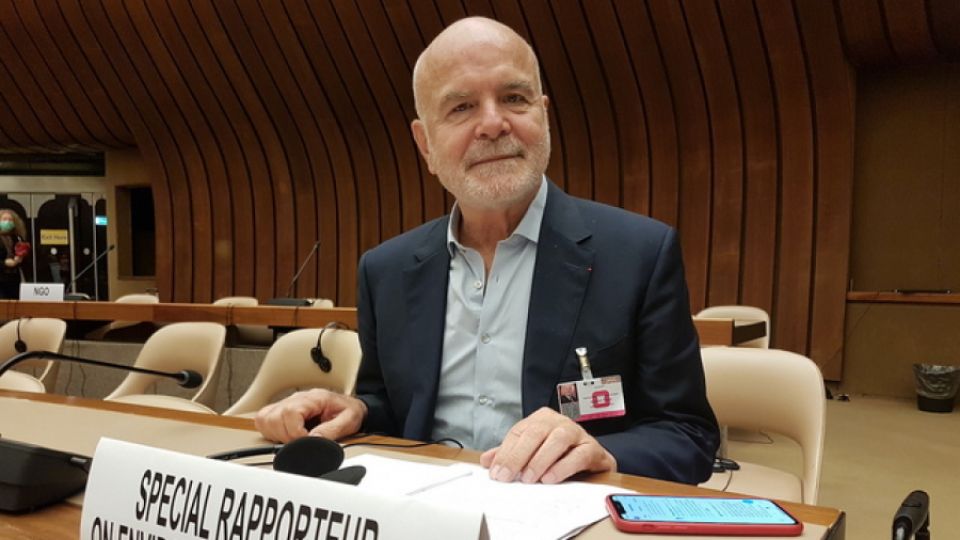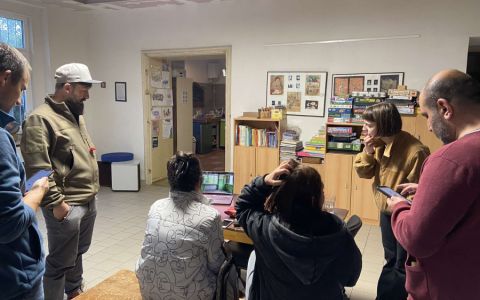The signatory states to the Aarhus Convention [1] on Environmental Democracy have unanimously elected a Special Rapporteur to help environmental defenders from persecution. This step comes in response to the worsening situation in the Western Balkans and the former Soviet Union and new cases from European Union countries. The trigger for the effort was the long-standing oppression of environmental movement activists in Belarus. Michel Forst, who had previously held a similar position at the UN, became the first ever rapporteur.
“This is great news. The appointment of the Special Rapporteur shows that the international community recognizes the seriousness of the persecution of people who are already defending the environment. Often these are not professional environmental activists but residents of villages or towns who do not want to allow their homes to be devastated. I believe that now the cases of persecution will no longer remain hidden, and the victims will receive faster and more effective help,” says an environmental democracy expert from Arnika, which has been advocating for the creation of the Special Rapporteur position since 2017. [2]
The Special Rapporteur was elected at an extraordinary conference of signatories to the Aarhus Convention. A total of 46 signatories and the European Union convened it in June (22-24 June, 2022) at the UN headquarters in Geneva, Switzerland, over environmental rights violations in Belarus; unplanned discussions about the even worse situation in Ukraine added to the mix. At the same time, Belarus has been stripped of its special Convention rights because its government has long ignored demands to stop persecuting environmental defenders and failed to take remedial action in October 2021.
“I will be an independent rapporteur, independent of countries, NGOs, and the Secretariat. I will be a Special Rapporteur who will be demanding, demanding of myself and others, and I will be a Special Rapporteur who will listen to all voices. I will be a Special Rapporteur who will be transparent to all parties to the Convention. Finally, I hope to be a Special Rapporteur who will be able to demonstrate the usefulness of this new mechanism,” Forst said after his election.
The election of the Special Rapporteur marks the culmination of efforts by NGOs to implement those parts of the International Convention that prohibit the persecution of people defending the environment. As early as October 2021, the Rapid Response Mechanism was successfully pushed through to enable practical assistance to people already subjected to surveillance, heavy fines, dismissal from employment, threats and intimidation, criminalization, detention, violence, and even murder. Until then, the international community has always reacted only ex-post, often with a delay of several years. At the same time, in October, the UN affirmed that a healthy environment is a fundamental human right. [3]
Sources:
Aarhus Convention press release on the election of Michel Forst as Rapporteur on the persecution of environmental activists: https://unece.org/environment/press/worlds-first-special-rapporteur-environmental-defenders-elected-under-aarhus
Details of the Aarhus Convention's Extraordinary Meeting of States Parties in June 2022: https://unece.org/info/Environmental-Policy/Public-Participation/events/365938
We also wrote about the persecution of environmental activists in Belarus here: https://arnika.org/en/news/belarus-should-stop-persecuting-environmental-activists-unece-countries-insist
Notes:
[1] The signatories signed the Aarhus Convention on June 25, 1988, due to the Fourth Ministerial Conference of the United Nations Economic Commission for Europe “Environment for Europe” in the Danish city of Aarhus. To date, 47 countries from the Europe and Central Asia region have ratified it. The Convention obliges the signatories to make information on the state of the environment and its impact on the population’s health actively and fully available to citizens. States must also ensure that everyone can participate equally in decision-making on projects that significantly impact the environment and be involved in developing plans and policies. Finally, it gives citizens the right to judicial protection when authorities violate the Convention’s standards. The Aarhus Convention is considered the most crucial document of its time. It combines environmental rights with civil rights and is an instrument for deepening democracy.
[2] In the Aarhus Convention area, cases of persecution, penalization, and persecution of environmental defenders have been reported from 16 countries since January 2017. Global Witness has recorded that 1,539 environmental defenders were killed worldwide between 2012 and 2020, which is generally considered a gross underestimate due to lack of information. The persecution of environmental defenders is monitored by the website: http://stop-persecution.org
[3] In October 2021, the UN included the right to a clean, healthy, and sustainable environment as a fundamental human right. You can read more here: https://arnika.org/en/news/un-rights-council-access-to-a-healthy-environment-is-a-human-right







